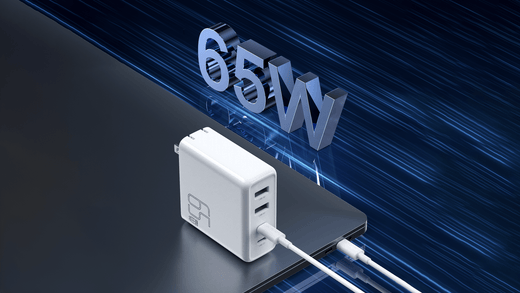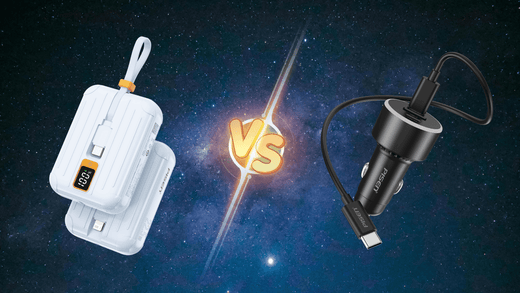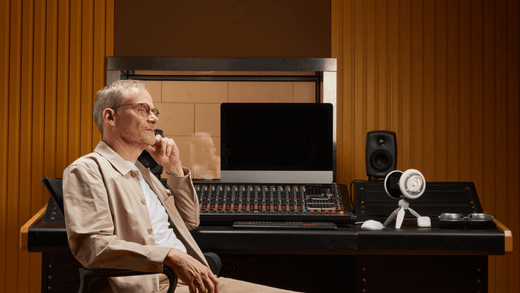In today's fast-paced world, audio technology plays a vital role in how we consume media and communicate. With the average person dedicating approximately 32 hours per week to listening to music or engaging in online conversations, understanding the intricacies of audio equipment is paramount. Among the key features that distinguish modern headphones are Environmental Noise Cancellation (ENC) and Active Noise Cancellation (ANC). In this article, we will delve deeply into the differences between these two technologies, their applications, benefits, and everything you need to make an informed decision for your audio needs.
What is ENC?
The Mechanism Behind Environmental Noise Cancellation
Environmental Noise Cancellation, or ENC, is designed to enhance audio quality by minimizing external disturbances. This technology employs advanced algorithms to detect surrounding ambient noise and produce counteracting sound waves that effectively cancel out unwanted sounds. By equalizing the incoming noise with a matching frequency, ENC headphones enable users to enjoy clear communication and immersive audio experiences.
-
How ENC Works:
- ENC headphones utilize built-in microphones to capture ambient sounds.
- These sounds are processed in real-time, generating an anti-noise signal.
- The resultant sound wave nullifies the external noise, ensuring an uninterrupted listening experience.
Benefits of ENC Technology
- Crystal Clear Communication: ENC is particularly advantageous for individuals who frequently engage in calls, making it an ideal choice for office environments and gaming headsets. By reducing background noise, ENC technology ensures that your voice remains clear and distinct during conversations.
- Enhanced Audio Clarity: Users can expect improved audio output, making it easier to focus on conversations or music without distractions. The result is a more engaging auditory experience whether in a professional setting or while gaming.
- Versatility Across Applications: ENC technology excels in environments where communication is essential, such as customer service roles, office work, or online gaming. It helps users stay engaged without distraction from outside noise.
Drawbacks of ENC Technology
- Awareness of Surroundings: One significant disadvantage of ENC headphones is the potential disconnect from your surroundings. While they are effective in cancelling noise, users may miss important audio cues, which can be a safety hazard in public or busy environments.
- Cost Implications: High-quality ENC headphones often come at a premium. It's essential to invest in reputable brands to ensure effective noise cancellation without sacrificing audio quality.
What is ANC?

The Fundamentals of Active Noise Cancellation
Active Noise Cancellation (ANC) shares similarities with ENC but is tailored for a different purpose. ANC headphones also employ sound wave technology to reduce unwanted ambient noise, focusing predominantly on the listening experience. ANC is best suited for audio reproduction scenarios, where the primary goal is to block out environmental distractions rather than enhance communication.
-
How ANC Works:
- Like ENC, ANC headphones feature microphones to detect ambient sounds.
- The system generates opposing sound waves, effectively canceling out background noise before it reaches the ear.
- This is particularly effective in enclosed settings, where external noises, such as airplane engines or subway sounds, can be a nuisance.
Advantages of ANC Technology
- Superior Listening Experience: ANC headphones excel in delivering high-fidelity sound by isolating users from distracting external noise. They are particularly favored by audiophiles and gamers who seek an immersive experience.
- Ideal for Stationary Use: ANC technology is generally more effective in overhead and over-ear headphones. These designs provide better passive noise isolation, enhancing the ANC effect while remaining comfortable for extended use.
- Focus and Productivity: For individuals working in noisy environments, coming across sounds from coworkers, machinery, or transportation can hinder focus. ANC headphones provide a sanctuary for productivity, making them perfect for studying and working in open offices.
Disadvantages of ANC Technology
- Compatibility Concerns: Not all headphones are designed to utilize ANC effectively. Investing in ANC-specific headsets is crucial to fully experience the technology's advantages.
- Lower Effectiveness at Low Volumes: ANC technology may struggle to isolate sounds at lower volumes. Users often find that music or audio played quietly can be muddied, necessitating a higher volume for optimal performance.
ENC vs. ANC: Which One Should You Choose?

When deciding between ENC and ANC, it's essential to consider your specific needs and usage scenarios. Understanding the unique advantages of each technology can help guide your choice:
When to Use ENC
- Communicative Settings: Use ENC headphones for work-related tasks, particularly when making calls or participating in video conferences. The clarity and focus on voice make them ideal for environments where communication is crucial.
- Gaming Applications: For gamers, ENC headphones can enhance the gaming experience by ensuring that in-game communication with teammates is clear and free from distractions.
When to Use ANC
- Immersive Listening: If you're listening to music, podcasts, or watching movies, ANC headphones provide a superior, distraction-free experience. They are perfect for travel, studying, or any situation where you require complete focus without outside interference.
- Commuting: ANC headphones shine during commutes, effectively drowning out the noise of trains, buses, or busy streets, allowing you to enjoy media or work on-the-go.
Recommendations for Headphones
- For ENC: We recommend the Baseus SIMU S1 Pro TWS Wireless Earbuds, which offer an exceptional audio experience combined with smooth connectivity and rapid wireless charging.
- For ANC: Consider the Baseus Bowie MA10 TWS Earbuds, a hybrid ANC solution that provides impressive noise reduction of -48dB and an extended battery life of up to 125 hours, making them perfect for lengthy commutes.
Conclusion
Choosing between Environmental Noise Cancellation (ENC) and Active Noise Cancellation (ANC) ultimately depends on your audio needs and usage context. By evaluating the features of each technology, you can select the best headphones for your lifestyle—whether you value crystal-clear communication or an immersive listening experience. For more insights and product recommendations tailored to your audio preferences, explore our website or reach out to our team of experts.
With this comprehensive overview, we aim to empower you with the knowledge needed to make informed decisions about which headphone technology best suits your unique requirements.





Leave a comment
All comments are moderated before being published.
This site is protected by hCaptcha and the hCaptcha Privacy Policy and Terms of Service apply.